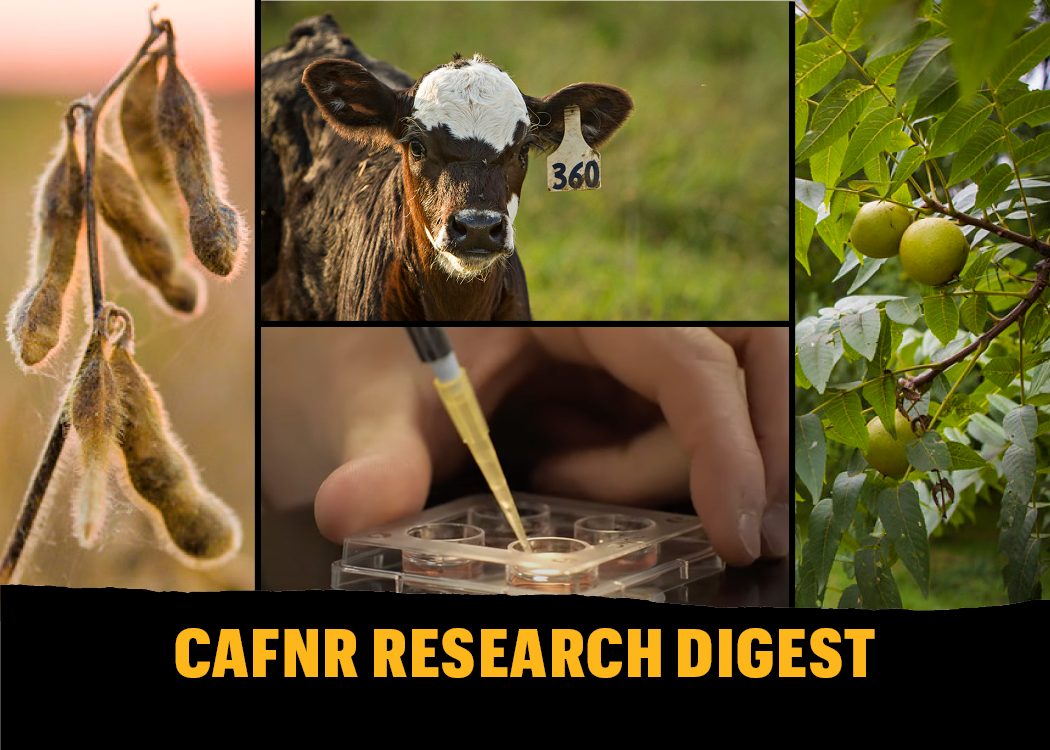|
CAFNR research and academic opportunities are being showcased to high school students as part of a summer STEM institute hosted by Lincoln University. The institute, which runs July 10-23, is part of competitive funding from NASA to showcase the impact of climate change on agriculture and ecosystems. Students are visiting laboratories of CAFNR faculty including Noel Aloysius, assistant professor, natural resources and bioengineering; Jianfeng Zhou, assistant professor, plant science and technology; and Morgan Davis, assistant professor, soil and environmental sciences. Other Mizzou faculty participating include Jaya Ghosh, program director, MU Coulter Biomedical Accelerator, and adjunct professor, Trulaske College of Business; and Sounak Chakraborty, associate professor of statistics. Participants also heard a presentation by the CAFNR student recruitment team while on campus, showcasing our college’s academic and extracurricular opportunities, while eating lunch provided by CAFNR. The institute aims to promote STEM education and prepare the future workforce among minority and underrepresented students. A total of 20 high-school students from Missouri (and one from California) are attending. Topics covered include GIS and remote sensing, artificial intelligence, big data, greenhouse gas emissions, hydrology, soil health and microbiology. This is the first year for the institute; students include high-school freshmen and sophomores. They will also get to participate in trips to St. Louis and the Lake of the Ozarks, in addition to time spent on Lincoln and Mizzou’s campuses. The institute is organized by Sougata Bardhan, assistant professor of natural resource management at Lincoln University. Bardhan is also an adjunct assistant professor in SNR, and served as an assistant research professor in soil, environmental and atmospheric sciences from 2015-2021. (Photo above: Assistant Professor Morgan Davis shows students soil monoliths to help understand the different soil types and characteristics.) |
